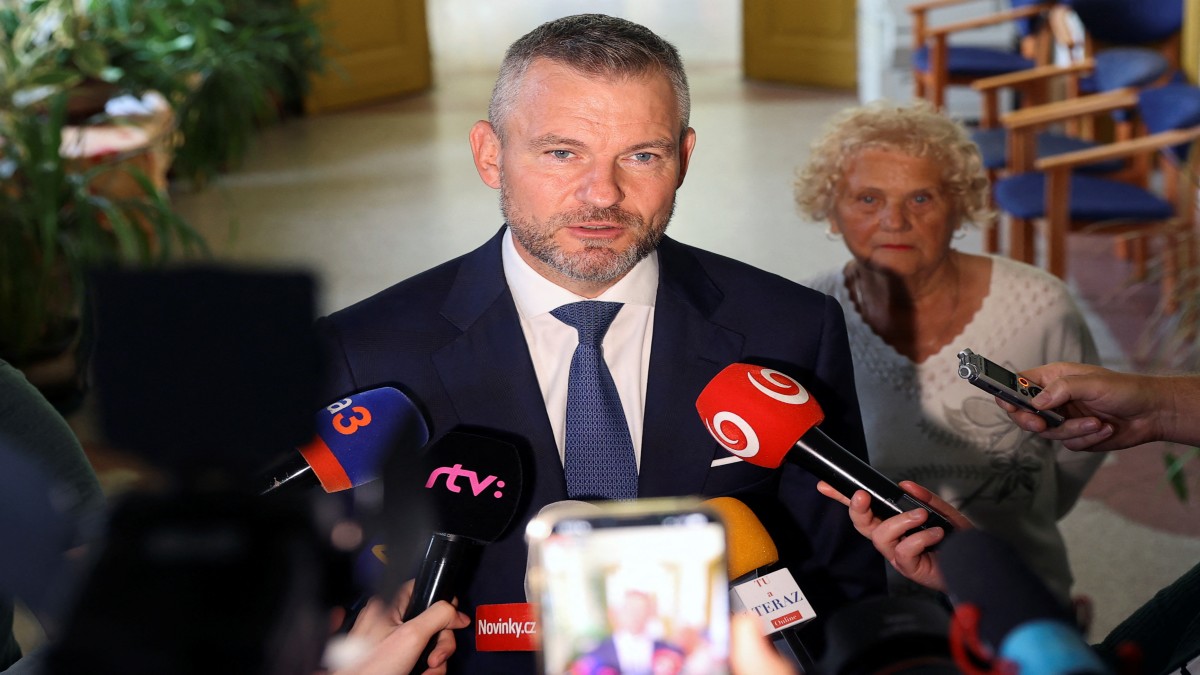Slovakia will have a presidential election this month, which may either soften or harden NATO and EU members’ attitudes towards Ukraine, whose sovereignty they have questioned.
Pollsters predict that the March 23 poll will pit an associate of the Russia-friendly prime minister against a liberal ambassador.
Peter Pellegrini, a former prime minister and current speaker of parliament, and Ivan Korcok, a former foreign minister, are the frontrunners among the 11 candidates.
Pellegrini earned the support of Prime Minister Robert Fico, who has refused to offer military help to Ukraine, questioned its sovereignty, and advocated for peace with Russia.
Korcok is firmly pro-Ukraine and shares the views of outgoing President Zuzana Caputova, a vociferous government critic who declined to seek for a second term.
“In the event of Pellegrini’s victory, we may expect a further deepening of the current government position and current narratives,” said Michal Mislovic, a political analyst at the Median polling agency.
“If Korcok wins, we can at least expect that he will be a counterweight to the government and parliament in this regard,” Mislovic told AFP.
Divisions over Ukraine
Though the office is largely ceremonial, the president ratifies international treaties, appoints top judges including the Supreme Court chief justice and is the commander-in-chief of the armed forces.
The head of state can also veto laws passed by parliament.
Pollsters expect a tight race. The latest survey by the Focus agency showed that Pellegrini would take 35 percent of the vote, while Korcok would receive 34.
Impact Shorts
More ShortsThis would send them to a run-off on April 6, as a second round is held when no candidate receives more than 50 percent of the ballot.
The war in Ukraine, which began with Russia’s invasion in February 2022, has been a fixture of the electoral campaign in this country of 5.4 million.
“It is a topic that divides the adult population of Slovakia to a large extent,” Mislovic said.
Pellegrini also acknowledged that.
“The Slovak political scene is divided between those who are in favour of the continuation of the war at all costs, and those who demand the start of peace negotiations,” he said.
“I belong to the latter,” Pellegrini told AFP.
‘Schizophrenic approach’
The 48-year-old is the chairman of Hlas-SD, a junior member of the government coalition led by Fico’s Smer-SD that also includes the small nationalist SNS party.
Analyst Radoslav Stefancik said Pellegrini tended to echo the government’s position on Ukraine.
“The government takes a schizophrenic approach…. On the one hand, it sends verbal signals that it is sympathetic toward the Russian government. On the other hand, it supports the actions of the European Union and NATO in relation to Russia,” said the analyst from the University of Economics in Bratislava.
Korcok, 59, is squarely in the pro-Ukraine camp.
“The Russian Federation has trampled international law… I do not think Ukraine should give up part of its territory in order to achieve peace,” he told AFP.
“The first prerequisite for us to be able to talk about a peaceful solution of this war is that Russian missiles stop hitting Ukrainian schools and hospitals,” he said.
Though running as an independent, Korcok is backed by opposition parties that believe a Pellegrini win would pave the way for presidential pardons of government allies found guilty of bribery and corruption.
Other presidential contenders include pro-Kremlin former Supreme Court chief Stefan Harabin, former far-right lawmaker Marian Kotleba and ex-premier Igor Matovic.


)

)
)
)
)
)
)
)
)



